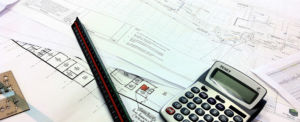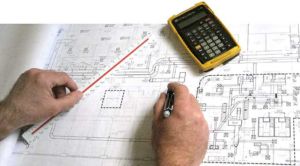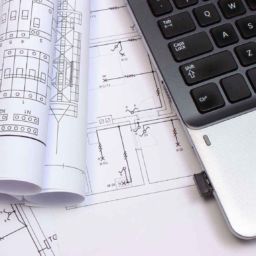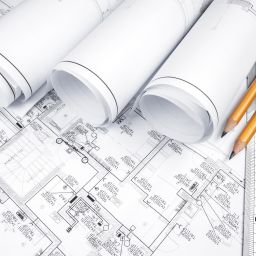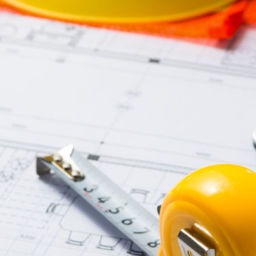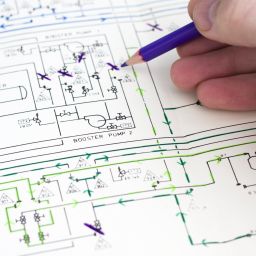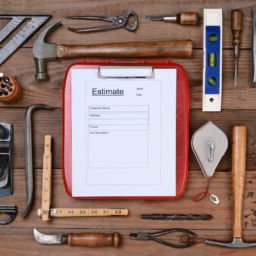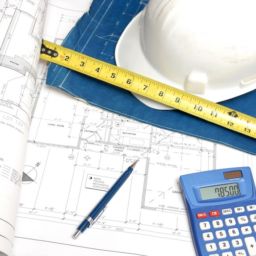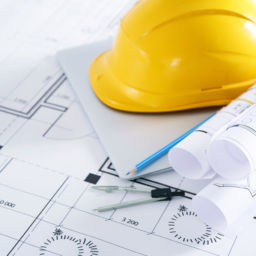Mechanical Estimators, Every construction project, no matter its size, needs an accurate estimate for a successful and most importantly, profitable delivery. Estimators are people who figure out how much it would cost to deliver a facility or project to a client. They are often involved in the pre-construction phase of a project when the firms are still competing with one another to win the bid.
The task of estimating may appear simple on the surface but is tedious, time-consuming and demands highly skilled estimators. The estimate you submit will determine whether or not you win or lose the bid on the project.
In this blog, we will discuss mechanical estimators. The challenges they face, the skills they need to possess and so on. Though the focus of this blog remains on mechanical estimators and mechanical estimating, the points discussed hold good for all fields of build estimating, like insulation estimating, electrical estimating and so on.
Mechanical Estimators- Who are they?
A mechanical estimator prepares an accurate mechanical estimate for a project. This estimate accounts for the many technical aspects of the project, plus the hard and soft cost of the project in hand.
What do Mechanical Estimators do?
To begin with, a mechanical estimator validates the Scope of Work of a project. The scope of work is a document that outlines all the tasks involved to complete a project.
Quantity takeoff and estimation are based on a detailed scope of work, construction drawings and specifications.
The estimator will issue an RFI if any details or specifications are missing from the Scope of Work. So, before starting an estimate, estimators should familiarise themselves with the Scope of Work.
Estimators should also consider paying a visit to the construction site before beginning their estimate for two main reasons.
Firstly, to know the ease of access to the site. You will need specialised equipment, more labour and hence more time to transport materials to areas with limited access or hilly regions when compared to buildings with easy access. Weather and the time of year may also have an impact on the work.
Secondly, to know which equipment can be used on the site. While the site location may not directly impact the materials needed for the project, it might influence the type of equipment required to execute the project.
These factors determine the appropriate labour hours, equipment rates for the project. The estimator must then factor in the profit ratio, overhead and other indirect costs for accurate quantity take-offs. Estimation software is generally used to produce quantity take-offs and by extension, an accurate mechanical estimation.
What makes a good estimator?
The specific abilities that mechanical estimators utilise daily are just as vital as their professional background. Some of the skills sets that make excellent estimators include –
- Estimators must be self-starters with solid planning skills. They are frequently called upon to make judgments/assessments about budget expenses based on minimal information.
- As estimators will be working directly with clients, vendors and other professionals like construction managers and planners, they must be able to work with a team.
- A mechanical estimator must have a good eye for precision and detail.
- Mechanical estimators must have excellent analytical and quantitative abilities. To prevent making inaccurate predictions, they must maintain track of the materials and resources used in a project.
- Estimators with actual on-site experience like engineers and architects make excellent construction estimators. A lot of the time they can envision a project in their mind just from looking at the drawing as they have seen similar layouts many times before. They must evaluate the project from several perspectives to make reliable estimations. Only then can estimators figure out the best strategy to account for the many expenses of a project.
- Estimators must also be good communicators. They may have to analyse project plans with construction designers. Although designers are responsible for the technical aspects, estimators must review the designs to make sure no essential features are overlooked and be able to communicate their findings effectively. Additionally, estimators need to be able to justify their estimates if the need arises.
It is possible to estimate projects yourself using this software. We receive the most favorable discounted rates from the UK’s leading software provider.
Challenges faced by an estimator
Construction Estimators, like any other professionals, encounter numerous hurdles. Predicting the future is the most difficult aspect of an estimator’s work. The building project they’re estimating today is likely to start only after a good 6 to 18 months.
Mechanical estimators must stay on top of market trends because prices and availability for materials, equipment and labour constantly change. Even if the estimate included accurate market prices at the time it was generated, shortages in materials or labour might drive prices up past usual rates and damage an estimate’s accuracy.
The client, contractor or designer may have some unreasonable expectations for a project. The estimator involved may feel compelled to disclose erroneous estimates, resulting in cost overruns. An estimator must know what they are doing in conditions like these or it can damage their reputation and professional relationships.
How can outsource mechanical estimating services help you?
![]()
If you are a mechanical contractor, who does not know how to put together a professional mechanical estimate or bid for their business, don’t worry, you are not the only one out there. Many contractors are unable to create a professional estimate or bid.
Some contractors know how to accomplish it, but they simply don’t have the time. Other contractors may have a large enough organisation to hire an in-house estimator, but they frequently find themselves overworked.
Many contractors have to “handle” estimating jobs, and if it weren’t there, they’d be free to focus on building their firm.
Hiring an in-house estimator or establishing an in-house estimation department may be too expensive for a small construction company to stay afloat, especially considering today’s fast-paced market conditions. Without contracts earned or projects completed at a fair profit rate, it would be a high-cost addition to your company’s overhead.
Even if you don’t get any contracts, you should always pay for the ingenuity you put into your estimation branch. If a project ends up costing significantly more than expected, you’ll have little choice but to suffer the loss. All of it while trying to keep your firm running smoothly enough to generate a reasonable profit on the following project.
It is to rescue you from overheads and estimating problems like these that outsource estimating companies like Chase estimating exist. We help you put together a professional and sound mechanical, electrical and insulation estimate for your project.
Our team of estimators have over 50+ years of combined experience in the field of construction. There isn’t much out there that we haven’t dealt with or tackled in the past.
Our expertise allows us to process and produce reliable M+E and insulation estimations at half the cost along with a faster turn-around time compared to full-time estimators.
Email us your request to enquiries@chaseestimating.com or call us at 01630 417161and we would be glad to help you with your insulation estimating or Mechanical or Electrical estimating requirements.


